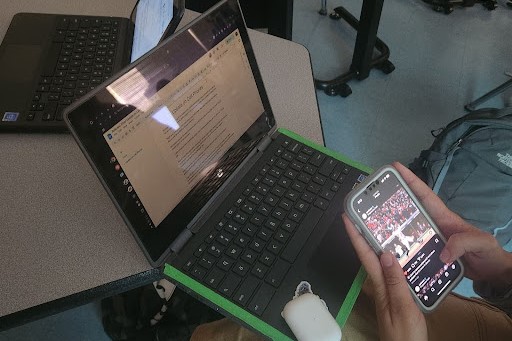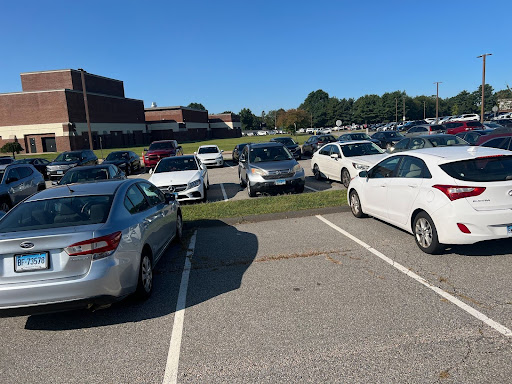
Starting at the beginning of this school year, SWHS administration has cracked down on phone use in classrooms. The new policy was designed to try to encourage students to be more focused during the time they have to learn.
Right now, the policy is “put your phone away, bell to bell,” as said on the announcements. But some SWHS teachers believe that the policy could be modified to be more effective.
Humanities teacher Erin Simcik believes that a cell phone policy is necessary, but thinks that the current one can be improved.
“I don’t think we even consciously realize what a distraction that they are [cell phones],” Simcik said.
Simcik thinks that physically removing cell phones from students’ hands, pockets and backpacks would make it easier for both students and teachers to refrain from use. She suggests a mandatory lock-up at the beginning of class.
Simcik notes that one of the challenges of the new cell phone policy is its variability in enforcement throughout different classes.
“The cell phone policy, as it stands, has allowed for a lot of teacher discretion, and I think students have interpreted that as I don’t always have to follow the policy of this teacher because that teacher says I don’t have to,” Simcik explained to The Prowl.
Like Simcik, math teacher Rebecca Correale, is all for putting away phones. Correale, however, thinks that the cell phone policy has brought positive change in her classroom.
“It can be very isolating. Growing up in the 80’s and 90’s when we finished an activity we would hang out and talk and play games. I noticed last year [that] my students were isolated and withdrawing [themselves] into their phones. This year has been great because they have been getting up and playing games at the board or playing uno and actually talking and socializing,” Correale explained.
While a lot of teachers see the absence of phones in their classroom as a beneficial change, students don’t all agree that it is necessary.
Senior Cameron Adduci is one of the many students who feel the cell phone policy needs to be improved and standardized.
“It feels like it’s a mixture of always enforced and never really,” Adduci said.
Sophomore Andre Gutierrez suggests that having more designated periods of times where students can use their phones would make it more manageable.
“I believe the phone policy is okay for the most part, but I think it can be improved if we kept our phones but had more [brain breaks] so [students] wouldn’t have to be sneaking out their phones,” Gutierrez said.
Overall, while there are disagreements between teachers and students about the role of cell phones in classrooms, both groups are ok with the changes that have been made.











